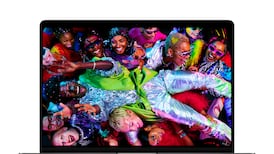A Pennsylvania mother's refusal to remove a 29-second YouTube video of her baby dancing to a Prince song has strengthened the ability of internet users to utilise copyright material on the internet without such use being considered a legal infringement.
In 2007, Stephanie Lenz posted a brief video on YouTube of her 13-month-old baby bouncing up and down to a Prince song that was playing in the background on her stereo. It's the type of spontaneous, personal video millions post every day.
But very quickly, music conglomerate Universal sent YouTube a take-down notice, stating the video violated copyright protections on the song provided by the Digital Millennium Copyright Act (DMCA).
YouTube complied and removed the video. But Lenz reposted the video, notifying YouTube that she felt a snippet of a song playing in the background of a home video was not a copyright violation.
YouTube left the video up. Lenz, with the help of digital rights advocacy group the Electronic Frontier Foundation (EFF.org), took a case against Universal. The so-called "dancing baby" case – officially, Lenz v Universal – has been slowly making its way through the California courts since.
Closely watched by those interested in copyright and the internet, it has become the symbol of the ongoing bitter clash between Hollywood entertainment and Silicon Valley technology interests.
In a highly significant ruling in the Ninth Circuit Court of Appeals in California this week, a three-judge panel ruled in support of Lenz. The judges determined that copyright holders, such as big music companies, cannot demand the take-down of material on the internet without first considering whether such use might fall under US protections for the “fair use” of such material.
Fair use
In the US, “fair use” allows for a third party to make use of copyright material, such as a song, a video, an artwork or a piece of writing within certain parameters. These include use in a review, or for educational use, but also when incorporated into a new creative work. The decision is seen as a significant victory for internet users.
The ruling is also significant because it gives those served with take-down notices potential financial recourse. It will allow someone issued with a notice to claim nominal damages against the copyright holder, if it were determined in court that the disputed material falls within fair use provisions.
“Today’s ruling sends a strong message that copyright law does not authorise thoughtless censorship of lawful speech. We’re pleased that the court recognised that ignoring fair use rights makes content holders liable for damages,” EFF legal director Corynne McSherry said Monday in a statement.
J Michael Keyes, an intellectual property partner at the Minnesota-based international law firm Dorsey & Whitney, noted on Monday in a statement that the ruling was "a significant development as it forces content holders to engage in a bit of copyright soothsaying before enforcing their rights".
Universal had argued that somebody should only be able to claim for damages if they could prove actual financial loss.
None of this has any direct implication for Ireland, which like the EU generally does not have a “fair use” copyright provision. Irish law, contained in the Copyright and Related Rights Act 2000, has a more restrictive concept of “fair dealing”.
But the indirect impact of the US ruling could be important. First, the decision will take its place in international case law and will influence legal arguments and decisions elsewhere. But more specifically, copyright reform is under consideration here and an important ruling such as this will provide fresh points for consideration.
That is, if badly needed reforms are brought in within the lifetime of this Government.
At the start of its term in 2011, the Government appointed a Copyright Review Committee chaired by Trinity College law academic Dr Eoin O’Dell. Two years ago, the commission issued a report arguing for a range of reforms including a broader fair use provision. Early on, the Taoiseach indicated support for a change in Irish copyright law.
The discussion and debate surrounding the decision in the US is a reminder that Irish law is still awaiting a promised, and badly needed, overhaul.












